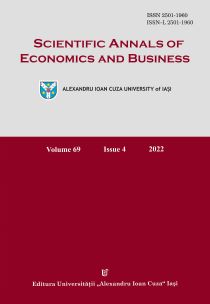Does Voracious Behavior favor Efficient Market Hypothesis? Role of Performance Measures
Does Voracious Behavior favor Efficient Market Hypothesis? Role of Performance Measures
Author(s): Attayah Shafique, Usman Ayub, Muhammad Shariq, Muhammad AshfaqSubject(s): Health and medicine and law, Financial Markets, Socio-Economic Research
Published by: Editura Universităţii »Alexandru Ioan Cuza« din Iaşi
Keywords: greed; benchmark; efficient market hypothesis; performance measures;
Summary/Abstract: Greed plays an important in the fluctuations of stock prices because investors want profits irrespective of the risk taken by them. This study aims to determine, whether, in times of rising trends in the market, greediness is good for the investor or not. Secondly, investors can get high profits by beating the market or not. The already formed deciles portfolios of listed companies on NYSE, AMEX, and NASDAQ based on size and book to market value are taken from the Kenneth R. French data library from Dec 1994 to Dec 2021. Sharpe, Treynor, and Sortino ratios are used as the measure of the performance of portfolios. Ordinal logistic regression is used to calculate the probability at different benchmark levels to determine, whether the investor gets the profit by beating the market or not. The results show that the investor who used the Sharpe ratio has an average 85% probability of getting a profit of more than 75% of the benchmark of S&P-500 in all periods. Thus, the investors’ greediness is good in the long run if the investor considers total risk and can beat the market. By using the Sortino and Treynor ratio, there is an average 50% probability of achieving the profit up to the benchmark which is S&P-500. This means that the investors are not able to beat the market thus, support the efficient market hypothesis by considering the downside and market risk.
Journal: Scientific Annals of Economics and Business
- Issue Year: 69/2022
- Issue No: 4
- Page Range: 631-649
- Page Count: 19
- Language: English

